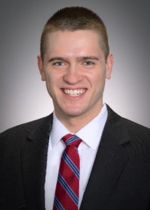
The Department of Psychiatry & Behavioral Sciences, in collaboration with the Duke Center for the Study of Aging and Human Development, offers a 12-month training program in geriatric psychiatry, led by Tracey Holsinger, MD. Trainees learn to provide direct patient care, function in the role of consultant, interpret research findings, and serve as educators in the subspecialty of geriatric psychiatry.
Why pursue a geriatric psychiatry fellowship?
By 2030, the 70+ million baby boomers in the United States will be older than 65. This fact, coupled with longer life expectancies, means the need for specialized medical care for older adults—such as geriatric psychiatry—will likely expand significantly in coming years.
Advanced training in this field equips psychiatrists to better address the complex mental health issues older adults face and affords them a wealth of professional opportunities in a wide range of clinical settings.
Why Duke Psychiatry & Behavioral Sciences?
Fellows learn from supervised clinical training in interdisciplinary inpatient, outpatient and long-term care settings as well as formal didactics through a comprehensive conference/seminar program. Fellows also benefit from opportunities for supervised participation in funded clinical research projects in aging.
A wide range of expertise is available to Duke geriatric psychiatry fellows, including electro-convulsive therapy (ECT) training, individual and group psychotherapy supervision for specialized treatment of older adults, and meaningful participation in cutting edge programs ranging from in-home care of patients to population level consultation in geriatric psychiatry. Duke geriatric psychiatry fellows have a high level of flexibility in their rotations.

“I was excited to pursue a geriatric psychiatry fellowship with Duke because of the commitment to compassionate, evidence-based care for older adults, its collaborative multidisciplinary approach, and its rich opportunities for growth in clinical, academic, and research arenas. I'm especially drawn to Duke’s dedication to memory disorders research, innovative programs, and the chance to work alongside faculty and trainees who are both exceptionally skilled and genuinely supportive.”
— Thomas Bainter, MD, MPH, Geriatric Psychiatry Fellow